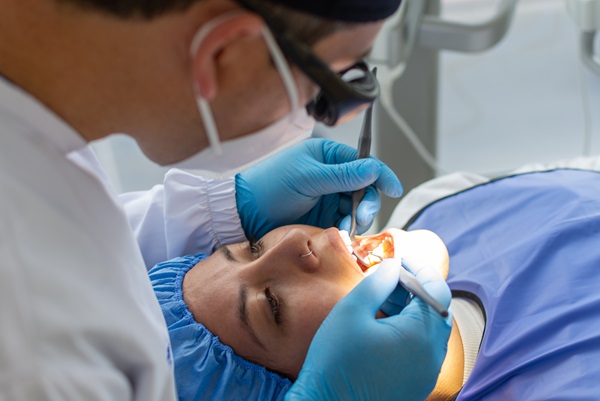When You Should Consider Visiting an Emergency Dentist

Most people visit the dentist once or twice a year, but it is impossible to know when a visit to an emergency dentist might be necessary. These dentists work on issues that must be treated immediately and cannot wait for a scheduled appointment. For people who are experiencing an issue with their dentition, knowing whether the problem requires emergency treatment can be confusing. However, certain types of injuries always benefit from the help of an emergency dentist.
When an emergency dentist can help
Emergency dentists do not usually require appointments because patients are not typically aware of the need to be seen beforehand. Patients should consider visiting an emergency dentist if any of the following situations occur.
A tooth has fallen out
A tooth that has come out of its socket is always an emergency. Whether it was knocked out during an activity or came out on its own, a dentist may be able to put it back in place as long as treatment begins quickly. Store the tooth in milk or saliva as soon as possible and until arrival at the dentist's. If the patient visits an emergency dentist right away, they may be able to place the tooth back in the patient's socket and help it reattach.
The face has suffered trauma
Trauma to the face is enough reason to visit an emergency dentist, even if the teeth do not appear damaged. Broken tooth roots or cracked facial bones can threaten the health of a tooth over the long term, even if they are not showing symptoms immediately. The dentist will likely perform X-rays to locate injuries that are not obvious, so patients are more likely to keep their teeth.
The gums are bleeding or oozing
A person’s gums may bleed lightly if they are brushing or flossing too hard, but gums that are persistently bleeding or oozing can be cause for concern. The discharge could indicate an abscess or pocket of infection that can creep into a tooth's pulp chamber if left untreated. The sooner an infection is addressed, the better.
A tooth has gone numb
The nerves inside a tooth provide sensations that help the brain interpret hot, cold, pressure, etc. If a tooth suddenly loses sensation, it could indicate that the nerves inside the pulp chamber are in immediate danger. See an emergency dentist right away for the best chance of saving the nerves and restoring the tooth to proper function.
A dental restoration has broken or fallen out
Dental restorations, such as fillings and crowns, cover vulnerabilities in teeth. If a restoration comes loose, the weaker inside of the tooth (the dentin and pulp) becomes exposed to bacteria that could quickly cause decay and infection. A filling or crown should be replaced as soon as possible after falling out, ideally on the same day, at an emergency dentist.
An emergency dentist can help
No one can predict when an accident might threaten their oral health. However, with an emergency dentist on standby, there is no reason to worry. Contact us if you are experiencing a dental issue that you believe may be an emergency, and we will help you maintain a healthy mouth even in a dire situation.
Are you considering an emergency dentist in the Houston area? Get more information at https://ashley1dental.com.
Check out what others are saying about our dental services on Yelp: Emergency Dentist in Houston, TX.
Related Posts
Because you never know when an emergency situation is going to happen, understanding how to handle a dental emergency is important. It could even mean the difference between saving and losing a tooth.Finding out how to stay calm during a dental emergency is one of the most important things you can learn how to do. It…
General dentists provide essential care to support oral health at every age, including well into adulthood and throughout the golden years. The goal is to help keep the smile in good shape so that it stays healthy, comfortable, and functional. Dental professionals can also address age-related oral health concerns, keeping you on track for a…
General dentistry focuses on routine oral health care for patients of all ages. This includes oral maintenance such as cleanings and examinations, as well as general treatments and preventive care. Preventive care often gets overlooked as it relates to general dentistry, however, it plays a key role in oral health. Keep reading to learn more…
A general dentist is a great resource to utilize when struggling with an unhealthy tooth. They have the training and experience to know how to handle just about any type of damage, whether it be a loose or infected tooth. When it comes to a general dentist pulling a tooth or saving it, there are…
